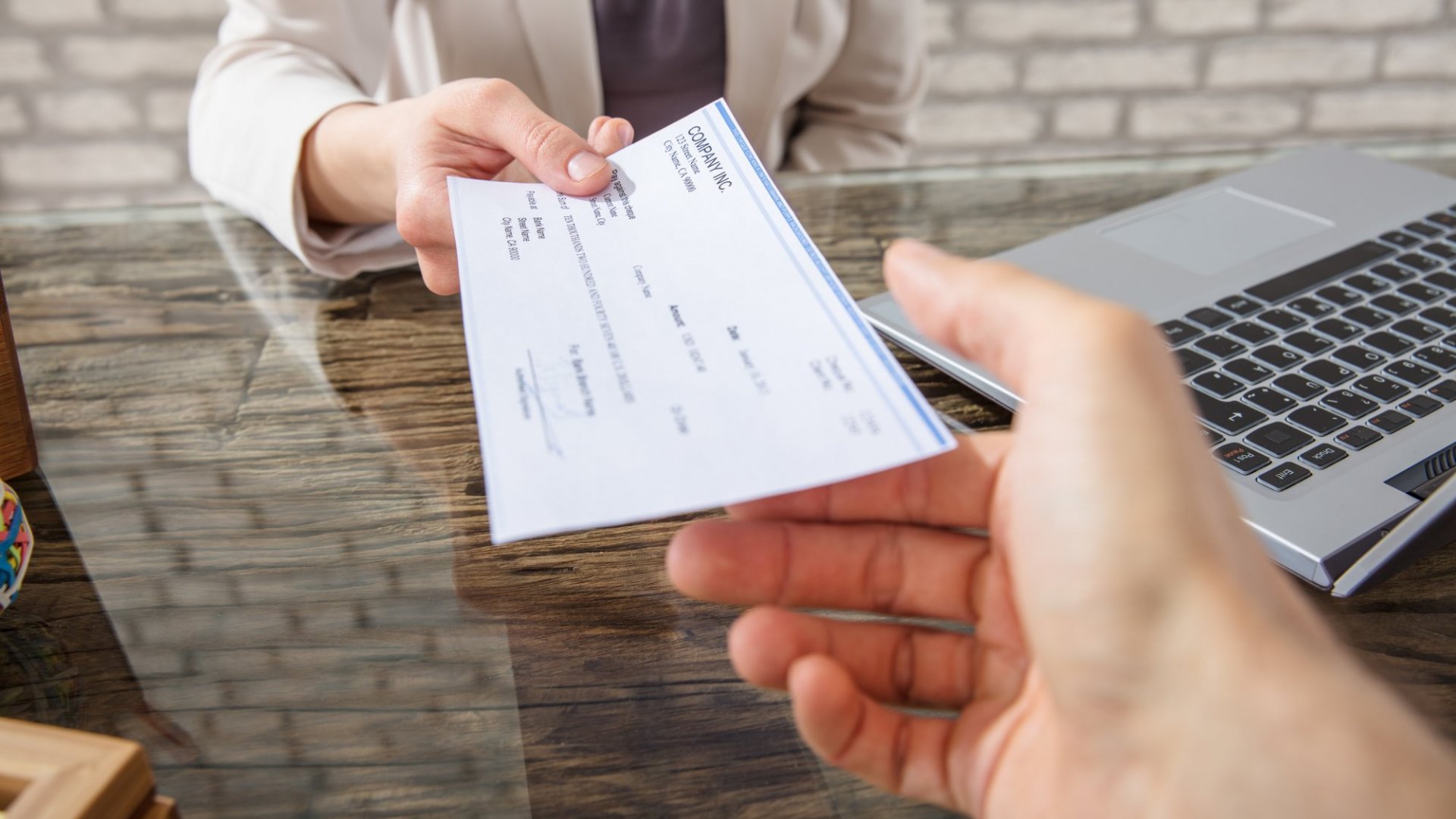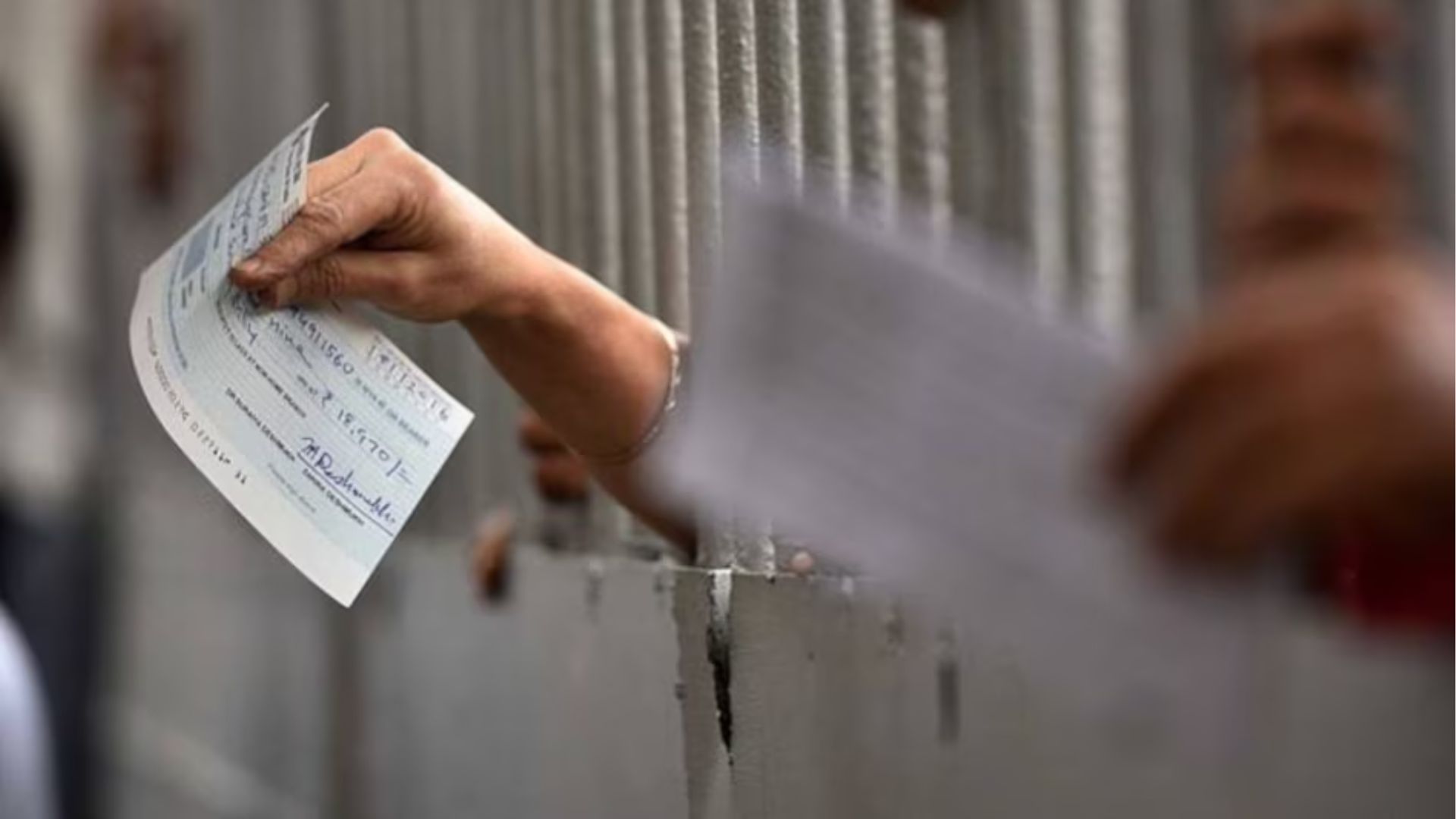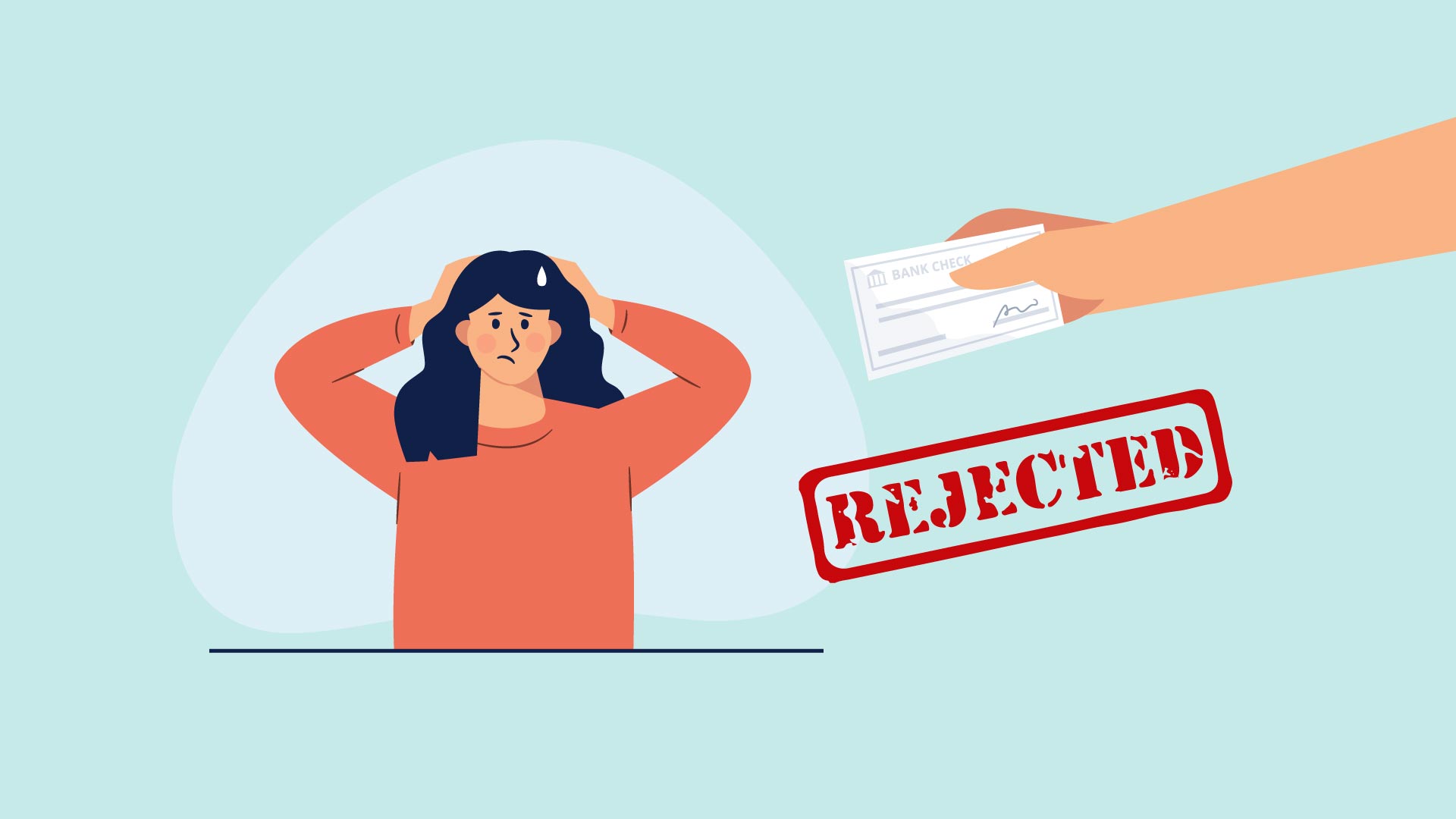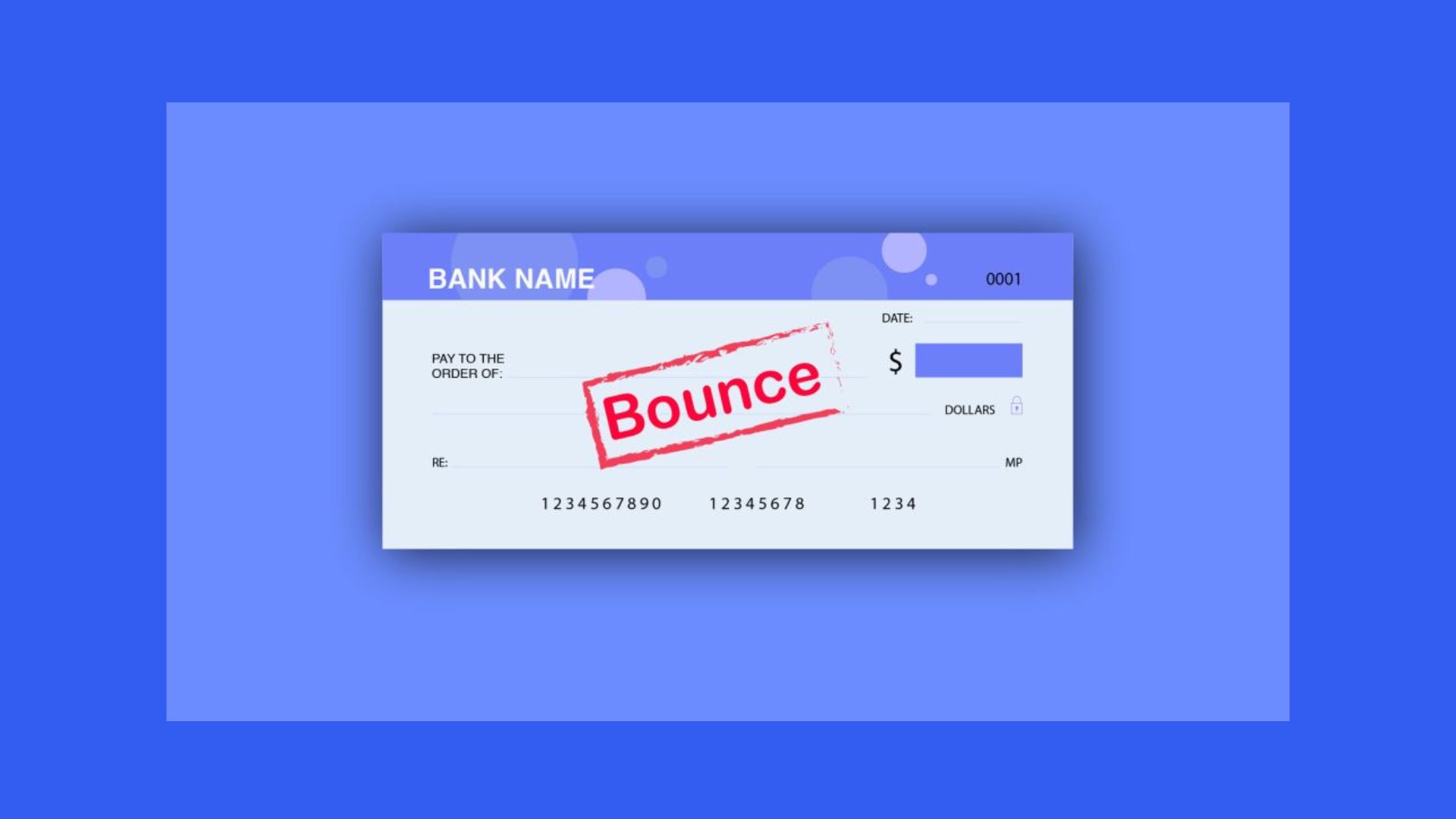What Does It Mean When A Check Bounces?
A bounced check refers to a situation where a check cannot be completed due to insufficient funds in the account of the person issuing the check.
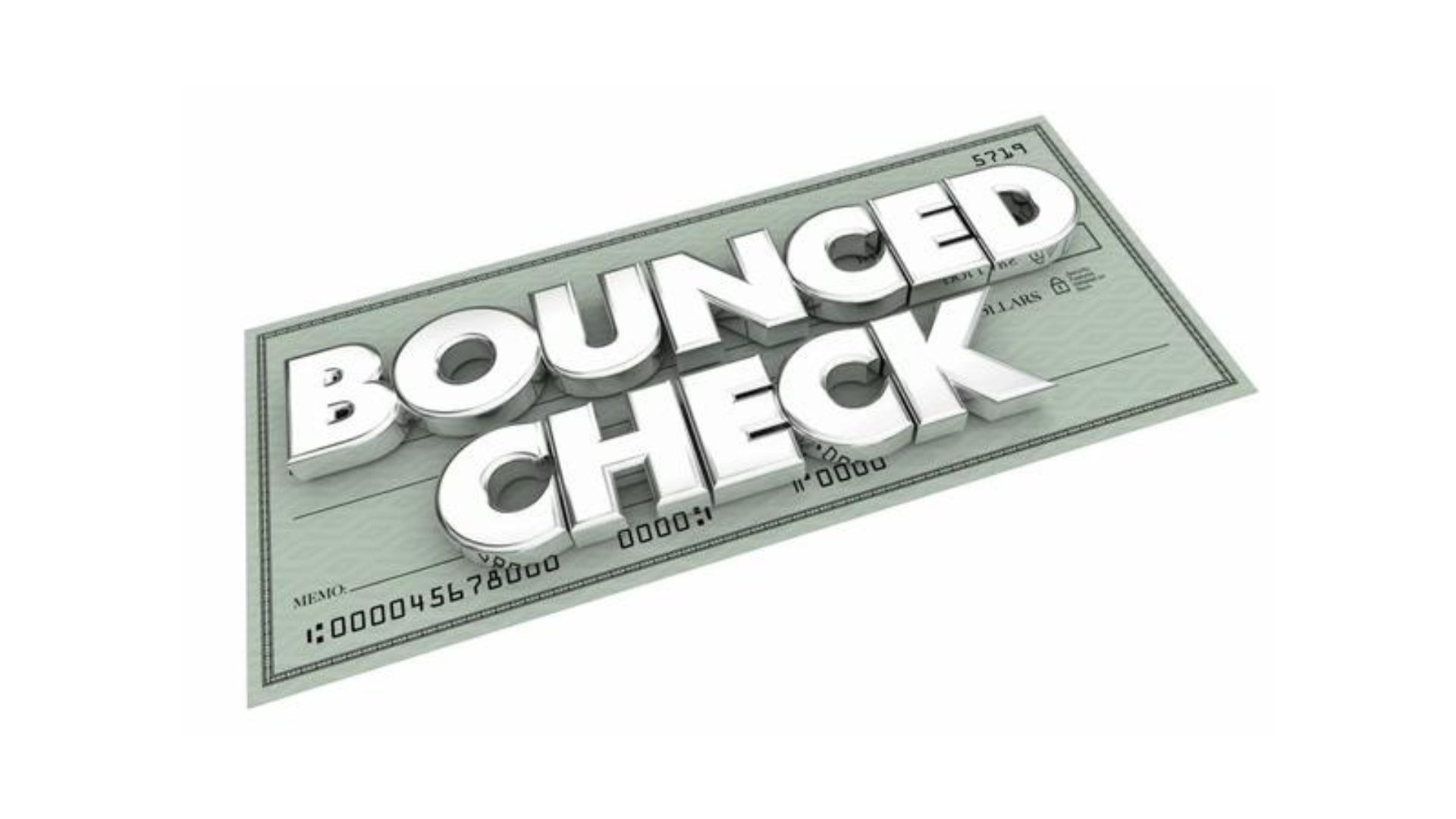
Morgan Barrons
Jan 17, 2024
A bounced check occurs when an individual attempts to process a check only to find that there are insufficient funds in the issuer's account to cover the transaction. Commonly referred to as a 'rubber check,' this situation results in the bank rejecting the payment, leading to penalties for the check writer.
Lack of funds is the primary reason for checks to bounce, but other factors can contribute to this financial hiccup. When a check bounces, it not only affects the check writer but also poses financial and legal consequences for the recipient, underscoring the importance of responsible banking practices to avoid such complications. In this article, we will be discussing what does it mean when a check bounces.
Understanding A Bounced Check
People who write bad checks often don't mean to because they need to know their bank amounts need to be higher. Some people use overdraft security or add a line of credit to their checking accounts to keep checks from bouncing.
You could be charged overdraft fees, not be able to write more checks, and have your credit score go down if your check bounces. You can only pay sellers by check in the future if you write fewer checks that bounce.
There is a service called TeleCheck that helps a lot of stores figure out if a customer's check is good. The store will only accept your check as payment if the system links it to a past of checks that have been paid. They will ask for another form of payment instead.
What Happens When A Check Bounces?
When someone's bank account bounces a check, a number of things can happen. It leads to these six effects.
Nonsufficient Funds (NSF) Fee
If you need more money in your account to cover a check, your bank will charge you an NSF fee. Bankrate's study of bank account and ATM fees found that the average NSF fee is $19.94.
Overdraft Fee
If you write a check but don't have enough money in your account to cover it, your bank may decide to pay it for you. This is called an overflow. The bank will then charge you an overdraft fee, which, according to Bankrate's study, is usually $26.61. It is essential to get your money in order as soon as possible because late payments and fines can add up quickly and leave you with no money in your account.
Outstanding Bills
If someone writes a check and it bounces, they don't get the money they came for. For example, let's say you write a check for your rent every month. The landlord only gets paid if there is enough money in your account to cover the check. In addition to the fees your bank charges, you will also owe your owner money until you can pay the rent.
Other Penalty Fees
Your bank may charge you NSF or overdraft fees, and the person you owe money to may also punish you. The owner who got the fake check for your rent each month could punish you.
You may be charged a fee if you're late with a payment, like to a loan or utility company, because the check bounced. This is especially true if it's not your first time. Credit card companies and other financial institutions often waive fees for long-term users with good payment records.
Damaged Banking Record
ChexSystems is a consumer reporting service that helps banks and other financial institutions figure out how trustworthy a possible customer is. ChexSystems keeps track of how you use your bank account.
Your ChexSystems report will show if you have a history of returned checks, fees that haven't been paid, and accounts that have felt the need to be closed. Banks look at the ChexSystems records of people who want to open bank accounts.
A bank may only accept your application if your report is correct. People in this position might need to apply for a second-chance checking account until they can get a regular account.
Closed Bank Accounts
Your bank could freeze or close your account if you bounce too many checks. If you need help with your account, talk to someone at the bank. If the bank knows you really want to fix the problem, they may be more willing to work with you.
Consequences Of Bounced Checks
Overdraft Fees
A bank may charge the person who wrote the check an overdraft fee if the check bounces because there aren't enough funds in the account. This fee is charged for every lousy check, and it can add up very quickly, putting a lot of stress on the person's finances.
Their bank may also charge the person who received the failed check a returned check fee. This makes the situation even more expensive for everyone.
Negative Impact On Credit Score
Checks that are returned can also hurt the credit score of the person who wrote the check. The person who received the check may report it to credit bureaus if the person responsible needs to quickly take care of the problem and make good on the payment.
This will show up on the check writer's credit report as a negative item. This could hurt the person's credit score, which would make it harder for them to get loans, credit cards, or other financial goods in the future.
Legal Consequences
When a check bounces, the person who wrote the check may face civil consequences. Check fraud may happen if someone writes a check with insufficient funds based on the situation and their intent.
People who are caught writing fake checks could be fined, have to pay court fees, or even go to jail. The person who received the bad check may also go to court to get the money back, which will add to the check writer's financial and legal problems.
Why A Check May Be Rejected?
A check might bounce for a number of reasons, such as.
The Account Lacks Funds
This means that the account from which the check is drawn needs more money in it. People who get the check will not be able to cash it or pay it because there are not enough funds in the account.
The Account Has Been Closed
If the account that the check is drawn on has been stopped, then any checks that were written from that account will not work. If you try to cash or pay a check from an account that is no longer open, you will be turned down.
A Stop Payment Order Was Issued
A payer can tell their bank not to accept a check by sending them a "stop payment order." This could be because of a lost check or a disagreement with the payee, among other things. The check will not be cashed if there is a stop payment order in place.
The Check Was Not Written Properly
Some things need to be corrected or included in the check that this refers to. Dates, numbers, or payee names that need to be corrected are common problems. Banks may only accept checks that are complete or have correct information on them.
The Check Is Too Old
Banks and other financial institutions have rules about how long checks are suitable for. If a check is presented for payment after a certain amount of time, usually six months to a year, it might be called "stale-dated" and be turned down.
The Check Is Fraudulent
If a check is found to be fake or faked, it will not be cashed. If someone tries to pass off a fake check or if the check is changed in a way that makes it fake, this could happen.
What To Do If You Bounce A Check?
If you've bounced a check, do these things.
Reach Out To Your Bank And The Check Recipient
Make sure you tell your bank and the person or business that got the check right away if you bounce a check. Explain your position to show that you mean well.
Pay Up Quickly
You probably won't see an insufficient check on your credit report if you pay right away. This means it won't hurt your credit score.
If the check isn't paid, however, it turns into a debt that needs to be paid. A bank, merchant, or debt collection agent can tell the three main credit bureaus, Experian, Equifax, and TransUnion, about this debt.
Avoid Bouncing More Checks
It's against the law to write checks when you know you don't have enough money to cover them. You could be charged with a misdemeanor or even a felony based on how many transactions you haven't paid for.
In other words, only write a check if you know your bank account has enough money. If you need to pay a bill, talk to the seller about ways to pay later or in payments.
How To Prevent Bounced Checks?
Most banks offer a service called "overdraft protection." It can help you stay away from bad checks, overdrafts, and some of the fees that come with them. Certain financial institutions may have different overdraft rules and protection choices. These may include the ones below.
Linked Account
Connect your bank account to a savings account or credit line to avoid having checks bounce. This makes sure there are enough funds on hand, which acts as a safety net and stops overdrafts. Keep an eye on both accounts on a regular basis to keep your finances stable and avoid not having enough money in either one.
Grace Period
There is a waiting period for overdrafts at many banks. This gives you time to deposit funds and avoid having checks bounce. Find out what your bank's rules are and make good use of this grace time. Making payments on time during this time can help you handle unexpected costs and keep your finances in good shape.
Balance Your Account
The most important thing you can do is check your account often. That means you should always know how much money is in your account and how much is about to leave. Check your account often to make sure there are no payments, checks, or automatic changes that need to be made. Find out how to use different tools to keep your account balanced.
Consider Overdraft Protection
It can be pricey to get overdraft protection, but it doesn't have to be. You will only have to pay overdraft fees sometimes if you use it as a safety net and not as a primary source of cash flow.
Your bank may cover bad checks for less than the cost of bounced check fees to stores and NSF fees to your bank. You could pay even less in fees if you use an overdraft line of credit or tell your bank to take money out of your savings account when your checking account doesn't have enough.
Pay With A Debit Card
If you keep having your checks bounce, try using a debit card instead (if you can). You'll know right away if the deal is affordable. Your card will only work if you have told your bank to go ahead with those charges.
Watch Your Balance
It takes a lot of work to remember everything. Your account amount could also be frozen in ways you didn't expect like if you use your debit card at a gas station or a deposit is held. Learn how to quickly check your account balance so you can fix issues before they get worse. Make sure you know when your account value is getting low by setting up alerts.
Communicating With The Bank
Another important thing you can do to stop bad checks is to keep the lines of communication open with the bank. People can lower the risk of having their accounts held without their knowledge, which could lead to bounced checks, by letting their bank know about any planned extensive deposits or withdrawals.
In addition, talking to the bank about any worries or questions about account amounts and transactions can help people understand their finances better and write checks with more knowledge.
Frequently Asked Questions
What Happens If A Check Bounces?
If a check bounces, it means there are insufficient funds in the issuer's account.
Why Would A Cheque Bounce?
Reasons include insufficient balance or a closed account.
How Do You Deal With A Bounced Check?
To deal with it, contact the issuer for payment, which may incur fees.
What To Do If A Cheque Bounces?
If a check bounces, notify the issuer and request a new payment or additional funds to cover fees.
Conclusion
Understanding what happens when a check bounces is crucial for individuals to navigate potential financial pitfalls. Bouncing a check can result in various consequences, such as overdraft fees, damage to one's credit score, and even legal repercussions.
The reasons behind a bounced check range from insufficient funds to errors in writing or fraudulent activities. To mitigate these issues, individuals can proactively take steps to prevent bounced checks, including utilizing overdraft protection, maintaining open communication with the bank, and adopting responsible financial practices.
In essence, being informed and proactive is critical to avoiding the ramifications associated with the phrase What does it mean when a check bounces?
